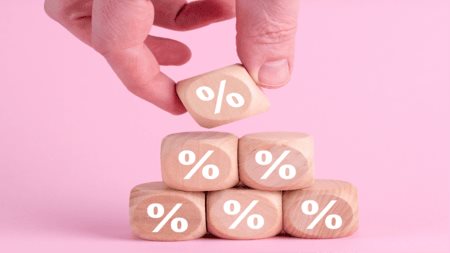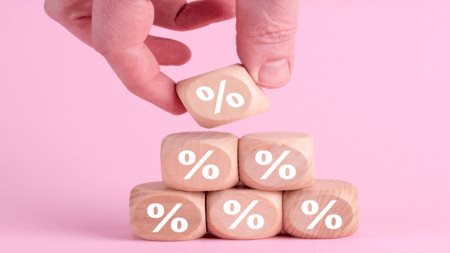Commercial banks were immediately reactive following the South African Revenue Bank’s (SARB) announcement on 19 July, of a repo* rate reduction of 25 basis points, by adjusting their prime interest rate by the same number of base points, to 10.%.
Isaac Matshego, Economist at Nedbank Group told Private Property that the interest rate reduction is very welcome as the economy needs all the help that can be mustered.
“Recent economic indicators on the domestic front, and international developments, supported a domestic rate reduction, so it was the right move by the Reserve Bank.”
With some commentators suggesting that there may have been room to go further with an additional 25 basis point reduction, Matshego says that you have to bear in mind that changes in interest rates are dependent on a number of indicators. “The level of the inflation rate and its outlook being prominent among those as the SARB pursues an inflation targeting policy. While the cut does however support the economy, more fundamental is the need to put the economy on a higher growth path.
“The weak growth trajectory and causes thereof have been acknowledged across government and the business sector, but the interest rate cut on its own will not be sufficient to revive business investment.”
Matshego is echoing what Reserve Bank governor, Lesetja Kganyago stressed when he made the announcement last Thursday; that the current challenges facing the economy are primarily structural in nature, and cannot be resolved by monetary policy alone.
For the consumer, there will be obvious immediate benefits, but Matshego says that this may be limited. “Lower interest payments are likely to be countered by other rising costs, such as higher fuel prices, so the support to household spending is similarly likely to be muted.
“The real estate market will benefit from the lower interest rates, but again, the impact may be limited, particularly for the low-end properties, where changes in consumer disposable incomes are a key determinant of demand. Income growth has been erratic since 2013, hurt by the weak job market.
“Higher economic growth and job creation will help to expand the residential property market as the country grapples with the shortage of accommodation in the low-income market,” Matshego explained. “The implementation of measures that will dispose of uncertainty and boost local investment would therefore ultimately help to revive activity in the residential and commercial markets.”
Property agents have reacted with some excitement, believing that this is the boost that will lift a flat property market, especially given Kganyago’s statement that the SARB expects the economy to grow at 1.8% in 2020.
*The repo rate and the chain of events that follows adjustments
So the South African Reserve Bank reduced the repo rate by 25 basis points, but what does that really mean? We cut through the jargon, so that you can understand the implications that the repo rate, prime lending rate, and interest rates have on you as a consumer and property owner.
Understand first that the economy is regulated by the South African Reserve Bank (SARB), by lending money to commercial banks at a set interest rate, known as the ‘repurchase rate’ or repo.
The repo rate is measured in basis points; one basis point is the equivalent of one hundredth of one percentage.
Let’s play this out: The cut this week by SARB of 25 basis points, equates to minus .25%. The repo rate at the time of the cut was 6.75%. When we reduce that by the 25 basis points, the new repo rate is therefore 6.50%, In reverse; had the SARB increased the rate by 25 basis points, the repo rate would have advanced to 7.0%, which we last saw in March 2016.
In fact the repo rate has swung between 6.75 and 6.50 since July 2017 in an effort by the SARB to maintain the inflation rate within a range of 3 to 6 percent by using the Consumer Price Index (CPI), which is a measure of average change in prices over a period of time that consumers pay for goods and services. In May this year, inflation stood at 4.5%, which is within the mid-point range of the SARBs target.
When the SARB changes the repo rate it sets into motion a change of events across financial markets, particularly the effect it has on inflation and the value of the Rand. It stands to reason therefore, that when interest rates increase, consumers have less money to spend causing the economy to slow, and vice versa.
With the latest adjustment, commercial banks can now borrow more money from the SARB at a lower rate, so they pass this onto their clients by adjusting their prime lending rates by the same amount of basis points that the SARB applied to the repo rate. So prime lending, which was at 10.25% at the time of the recent announcement, now reduces to 10%.
The interest rate drop means consumers now have the opportunity to borrow more money and for those with an existing bond, or loan, there is an opportunity to reduce current monthly instalments. The savvy saver usually doesn’t opt for this as it helps pay off the debt a little faster, and is a great buffer should the repo rate change again in the near future.
In the property market, an interest rate cut introduces more, and new, buyers to the market. In simple terms what we are currently looking at, according to BetterBond, with the prime lending rate at 10%, is a saving of roughly R16 a month per R100 000 owed on the bond. BetterBond also confirms that first-time borrowers now require a gross household income of about R32 000 a month to qualify for a R1-million home loan.




